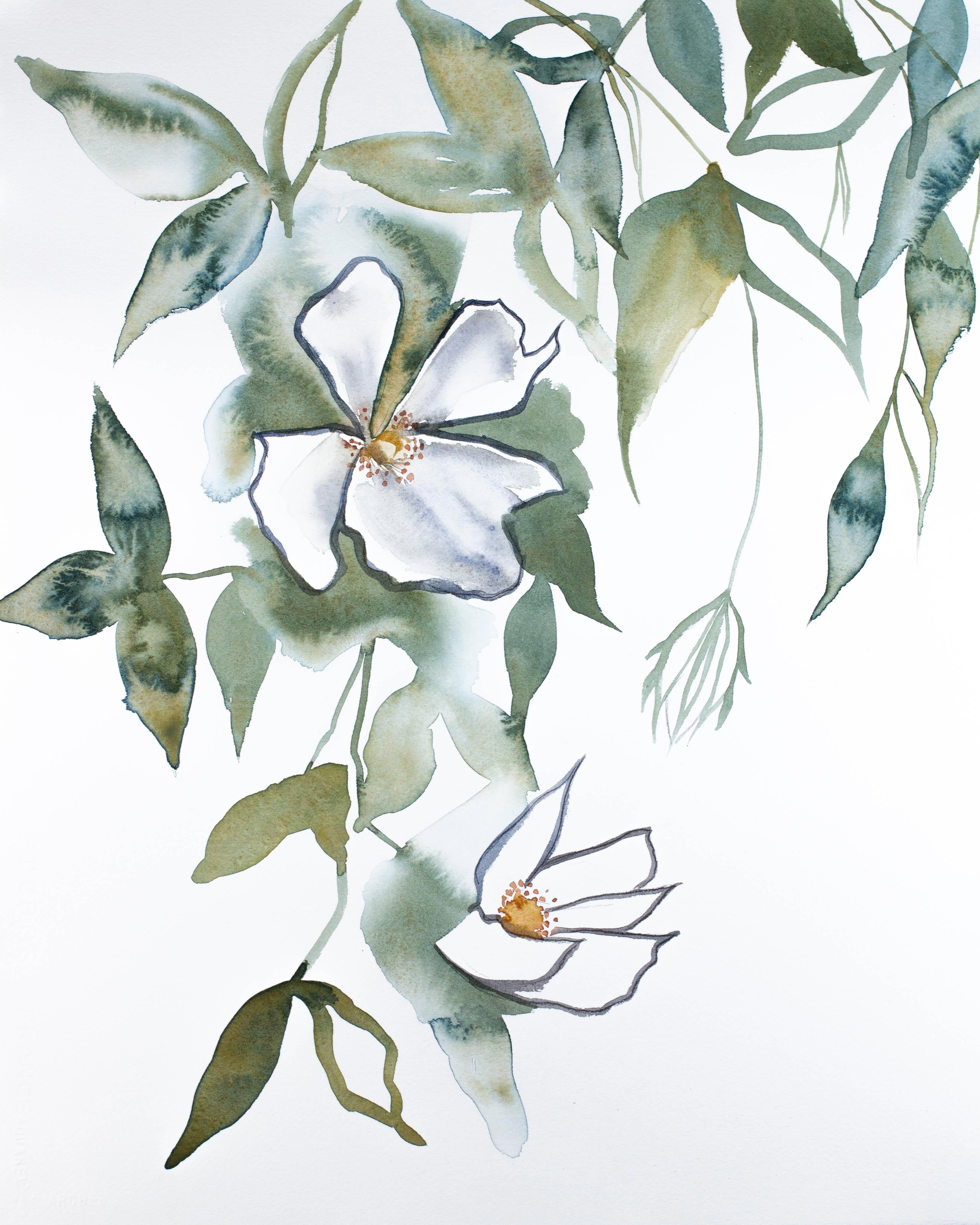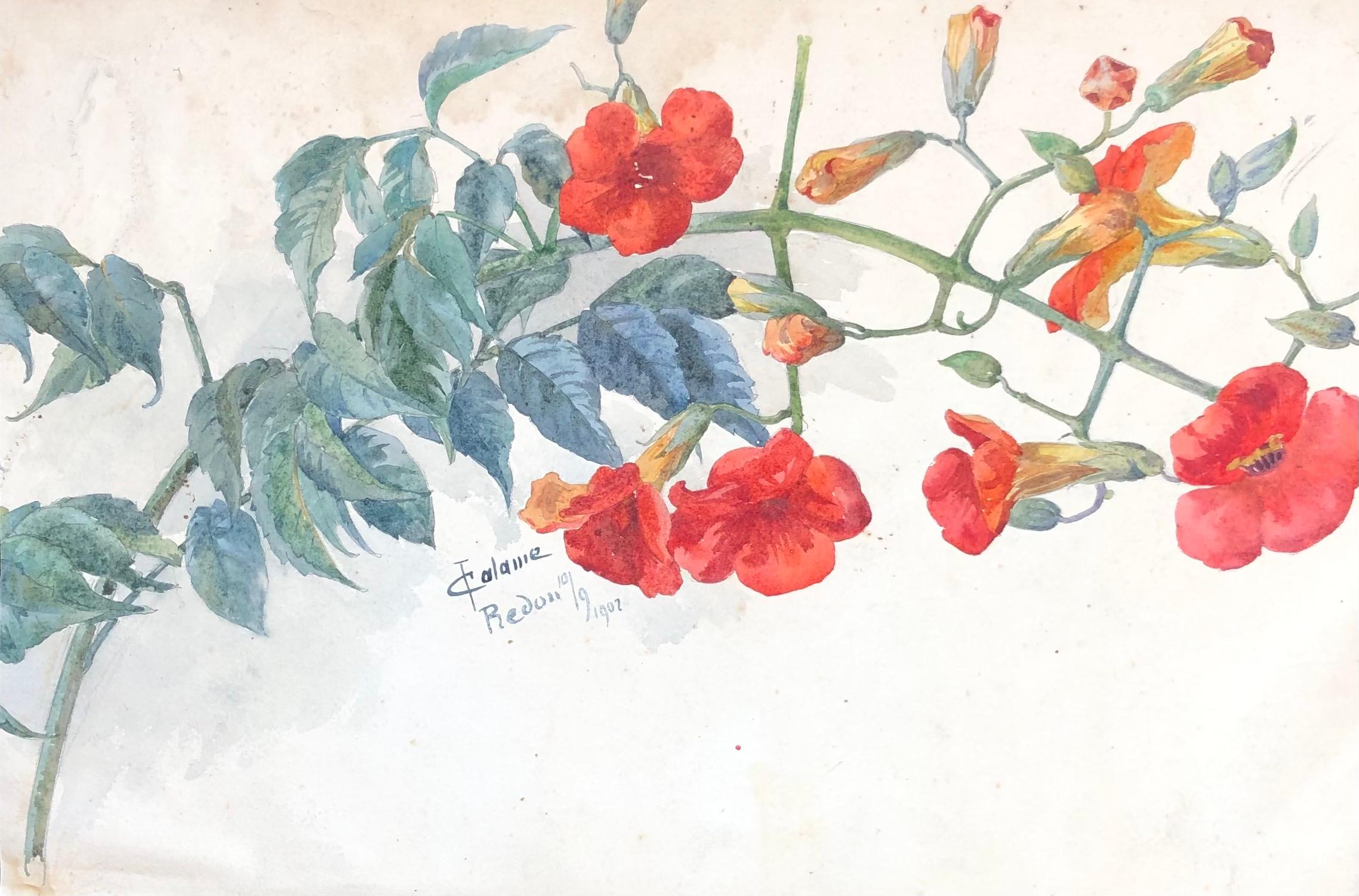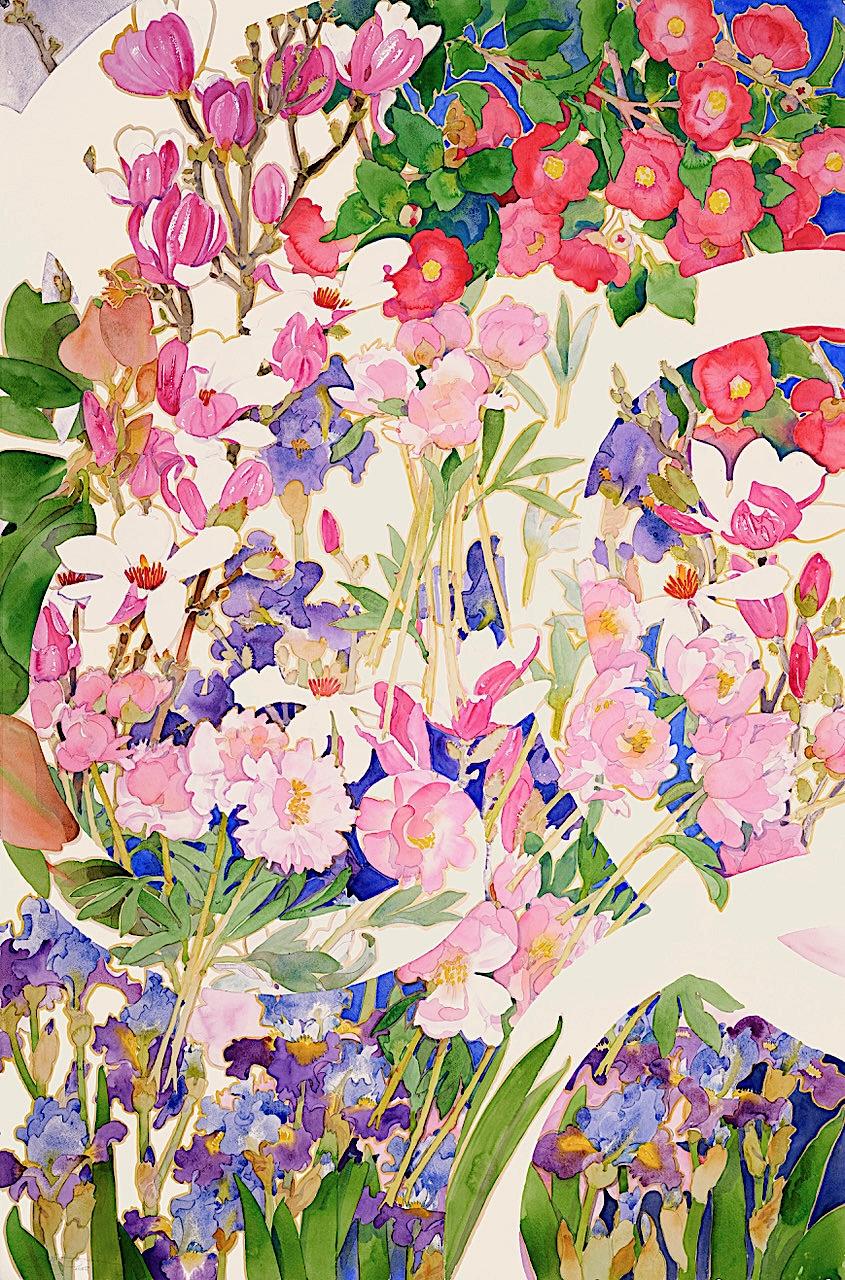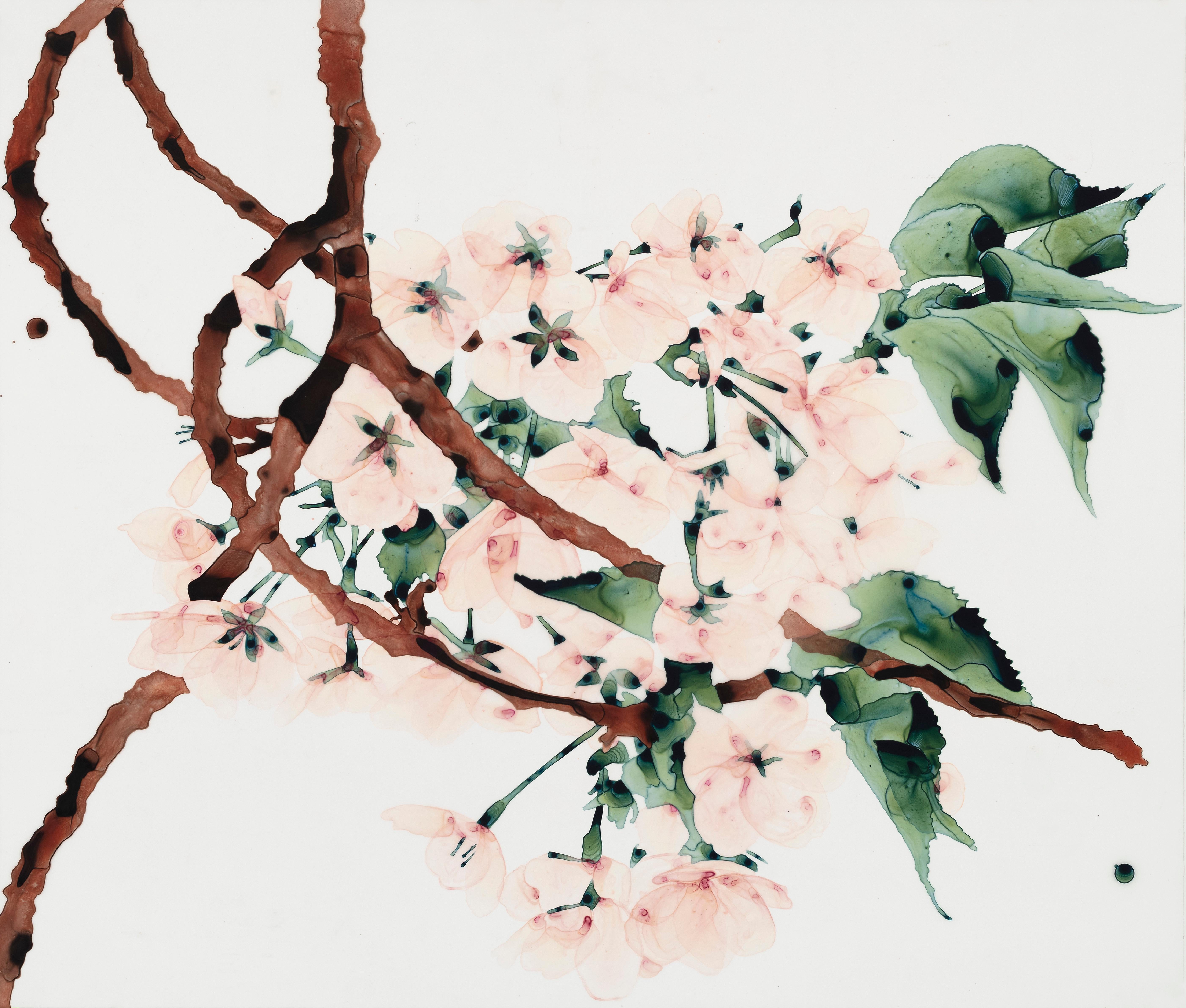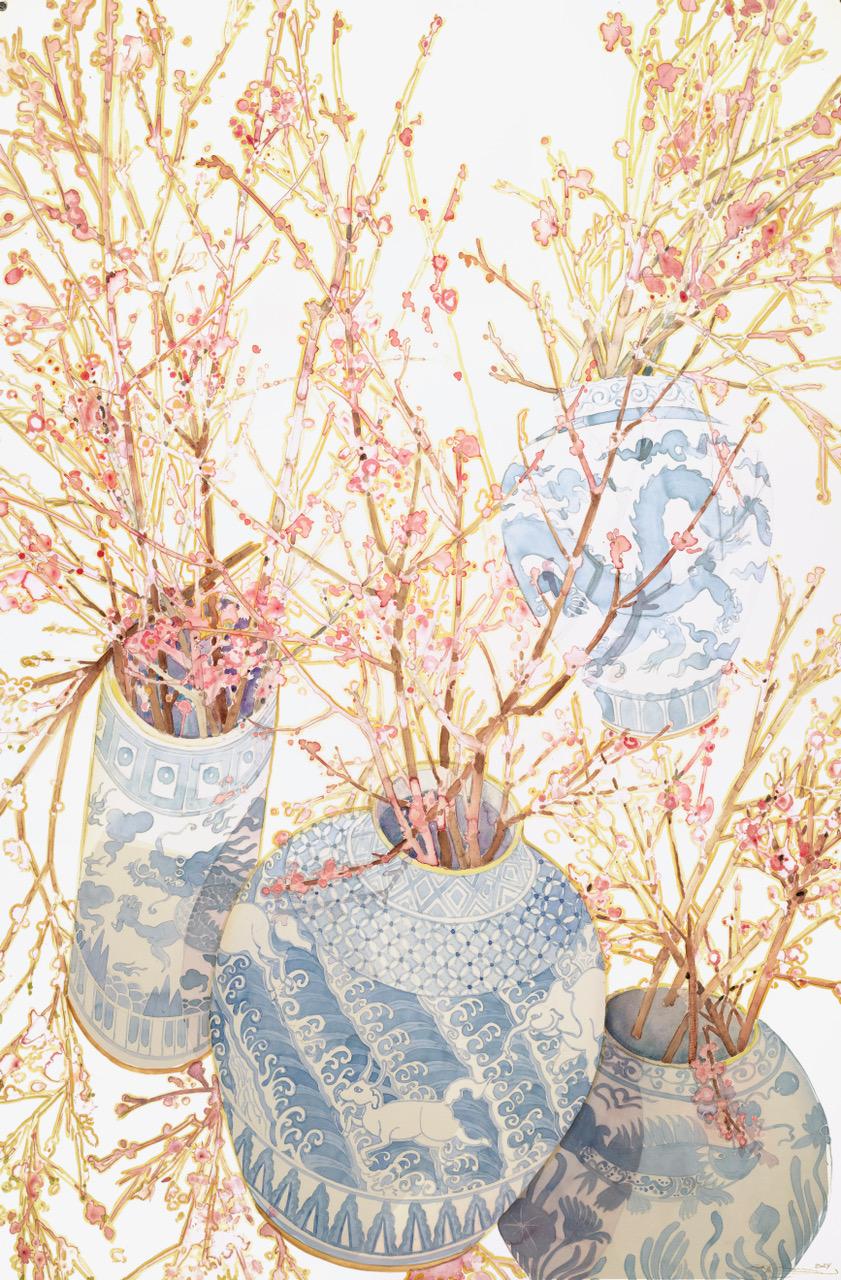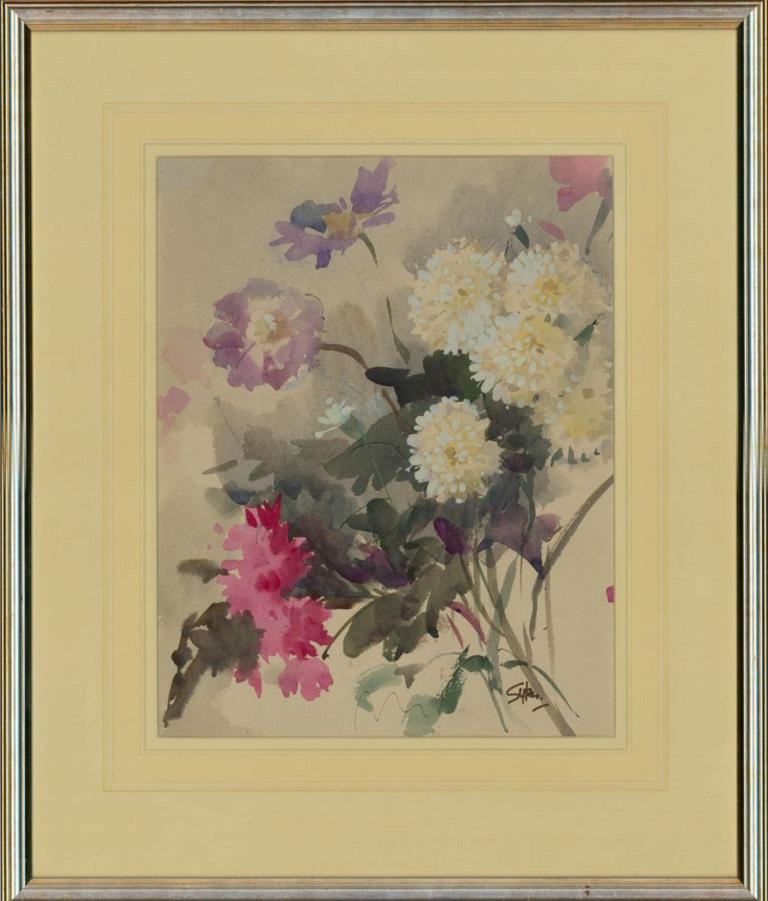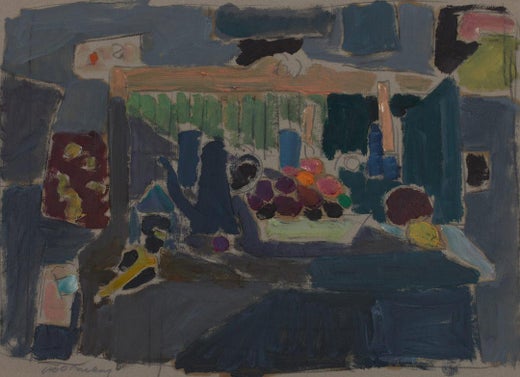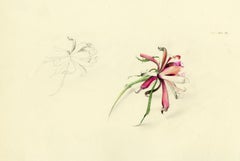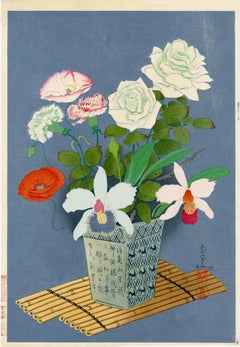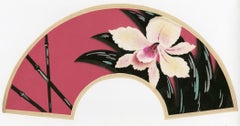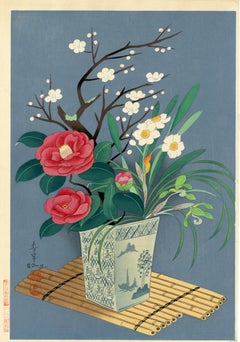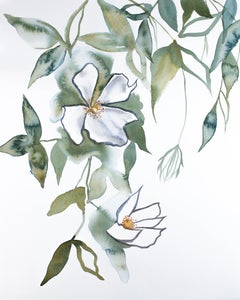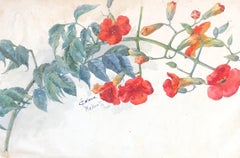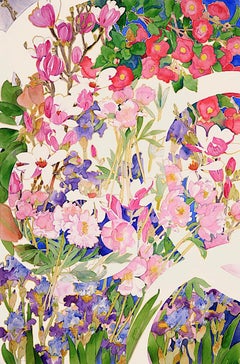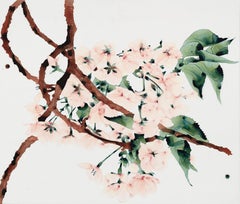Items Similar to Plum Branches and Flowers
Want more images or videos?
Request additional images or videos from the seller
1 of 9
Joseph O'SickeyPlum Branches and Flowers1985
1985
$1,500
£1,122.33
€1,302.55
CA$2,088.56
A$2,349.17
CHF 1,218.46
MX$28,497.18
NOK 15,449.41
SEK 14,538.76
DKK 9,717.42
Shipping
Retrieving quote...The 1stDibs Promise:
Authenticity Guarantee,
Money-Back Guarantee,
24-Hour Cancellation
About the Item
Plum Branches and Flowers
watercolor on wove paper, 1985
Signed and dated in pencil lower right corner
From the artist's 1985 sketchbook
Inspired by O'Sickey's love of Japanese and Chinese art and calligraphy.
Provenance: Estate of the artist
Condition: Excellent
Image/Sheet size: 13 5/8 x 17 inches
Joseph B. O’Sickey, Painter
1974 CLEVELAND ARTS PRIZE FOR VISUAL ARTS
The title conferred on him by Plain Dealer art critic Steve Litt in a 1994 article, “the dean of painting in northeast Ohio,” must have pleased Joseph O'Sickey. It was more than 30 years since he had burst onto the local (and national) art scene. O’Sickey was already in his 40s in that spring of 1962 when he had his first one-man show at the Akron Art Museum and was signed by New York’s prestigious Seligmann Galleries, founded in 1888. In the decade and a half that followed, he would have seven one-man shows at Seligmann, which had showed the work of such trailblazing figures as Seurat, Vuilliard, Bonnard, Leger and Picasso, and appear in all of the group shows.
O’Sickey took the Best Painting award in the 1962 May Show at the Cleveland Museum of Art (CMA). He and would capture the same honor in back-to-back May Shows in 1964 and ’65, and again in 1967. The remarkable thing, noted the Plain Dealer’s Helen Borsick, was that he accomplished this sweep in a variety of painterly styles, even using that most hackneyed of subjects, flowers. “The subject doesn’t matter,” he told her, “what the artist brings to it is the important thing.” O’Sickey’s garden and landscape paintings were big and bold, eschewing delicate detail in favor of vitality and impact. The great art collector and CMA benefactor Katherine C. White, standing before one of O’Sickey’s vivid garden paintings, compared the sensation to “being pelted with flowers.”
Though he might represent an entire blossom with one or two smudged brush strokes or a stem with a simple sweep of green, O’Sickey rejected the moniker of Impressionist—or Pointillist or Abstract painter or Expressionist. “My work,” he said, “is a direct response to the subject. I believe in fervor and poetic metaphor. I try to make each color and shape visible and identifiable within the context of surrounding colors and shapes. A yellow must hold its unique quality from any another yellow or surrounding color, and yet read as a lemon or an object, by inference. It does not require shading or modeling—the poetic evocation is part of the whole.”
“The subject,” O’Sickey used to tell his students at Kent State University, where he taught painting from 1964 to 1989, “has to be seen as a whole and the painting has to be structured to be seen as a whole.” He liked to think of it as “a process of controlled rapture.”
When, in the 1960s, fond childhood memories drew him to the zoo, he found himself responding to the caged animals in their lonely dignity (or indignity) with sharp-edged, almost silhouette-like forms that evoked Matisse’s paintings and cut-paper assemblages. One observer was left with the impression that the artist had “looked at these animals, past daylight and into dusk when they lose their details in shadow and become pure shapes, with eyes that are seeing the viewer rather than the other way around. This is a world of shape and essence,” wrote Helen Borsick. “All is simplification.”
O’Sickey attributed his ability to capture his subjects with just a few strokes—in an almost iconographic way—to a rigorous exercise he had imposed upon himself over a period of several months. Limiting his tools to a large No. 6 bristle brush and black ink, he set himself the task of drawing his pet parakeet and the other small objects in its cage (cuttlebone, feeding dish, tinkling bell) hundreds of times. The exercise gave him “invaluable insights into painting. . . . Because of the crudity of the medium, every part of these drawings had to be an invention and every mark had to have its room and clarity.” Then he began adding one color at a time—“still with the same brush and striving for the same clarity”—and headed off to the zoo where “the world opened up to me. I learned how little it took to express the subject.”
Born in Detroit at the close of the First World War, O’Sickey grew up in St. Stanislaus parish near East 65th and Fleet on Cleveland’s southeast side. (The apostrophe was inserted into the family’s proud Polish name by a clerk at Ellis Island.) An early interest in drawing and painting may have been kindled by the presence on the walls of Charles Dickens Elementary School, one of only three grade schools in the district with a special focus on the arts, of masterful watercolors by such Cleveland masters as Paul Travis, Frank N. Wilcox and Bill Coombes.
As a youngster O’Sickey took drawing classes at the Cleveland Museum of Art, and he and his brother spent hours copying famous paintings; while a student at East Tech High School in the mid-’30s, he attended free evening classes in life drawing with Travis and Ralph Stoll at the John Huntington Art and Polytechnic Institute, and Saturday classes at the Cleveland School (later the Cleveland Institute) of Art, where he earned his degree in 1940 under the tutelage of Travis, Stoll and such other legendary figures as Henry Keller, Carl Gaertner, William Eastman, Kenneth Bates and Viktor Schreckengost, subsequently serving with the U.S. Army in Africa, India and Burma.
After the War O’Sickey spent a year teaching at Ohio State University. There he had a two-person show with another young painter, Roy Lichtenstein, who became a life-long friend, and found a sympathetic spirit in Hoyt Sherman, who was then just completing his groundbreaking work, Drawing by Seeing: A New Development in the Visual Arts through the Training of Perception. As a teenager, O’Sickey had instinctively rebelled against the academic tradition of teaching art students to draw the figure (and other objects) in isolation from the background.
“Things have their meaning only in relationship to other things,” says O’Sickey, still passionate about what he sees as a fundamental principle of his art—and of all good art. You can’t decide the meaning of something before you have seen it in its context. “You have to act on what’s there. Each choice you make, each brush stroke, each new color you put on the canvas must be a response”—to what’s there, and to how it has changed things.
Even areas of unpainted canvas become participating shapes or active presences (“I reject the whole concept of ‘negative’ space”) the moment that space is modified or divided by a new line into juxtaposed shapes. “You can’t choose your color palette in advance because you don't know what’s going to give you the contrasts necessary to hold it all together; sometimes you have to make a completely different choice from what’s out there, for the unity of the whole.”
Settling in Cleveland Heights in 1947 with his new bride, the painter and soft-sculpture artist Algesa D’Agostino, who would be his inseparable companion and soul-mate for the next 60 years, O’Sickey supported himself as a commercial art director and design consultant. In 1956 he joined the faculty of Western Reserve University’s School of Architecture, and he and Algesa formed a design partnership with architect Robert A. Little and his wife Anne, an interior designer. O’Sickey later believed it was a painting he did of the front lawn of their house on Edgehill Road that set his career on a new path.
The home in rural Twin Lakes, near Kent, Ohio, to which he and Algesa moved in 1968, an idyllic retreat festooned with flowers and a walled garden, was to provide an endless source of inspiration. O’Sickey’s paintings, drawings and watercolors have been seen in more than 80 group- and some 54 one-man shows. Three of those solo exhibitions took place at New York’s Kennedy Galleries of American Art, where his work was regularly hung alongside that of Walt Kuhn, Will Barnett and Georgia O’Keefe. A lengthy profile of O’Sickey that appeared in the January 1987 Golden Anniversary issue of American Artist revealed him to be an unusually articulate painter (“One should never rule out how much depends on kinesthetic action,” O’Sickey told Will Kirby about the inherent limitations of Photo-Realism and photography. “Rhythm and form are translated to the canvas not by the eye alone, but by the whole body of the artist.”).
In 2007, the Cleveland Artists Foundation mounted a seven-decade retrospective of his work titled Menageries and Other Worlds, curated by William Busta and Richard Sarian, that fairly throbbed with O’Sickey’s delicious sense of color. In 2009, inspired by a novel about childhood by W. H. Hudson published in 1918, the year O’Sickey was born, the 91-year-old artist designed, and underwrote with a generous grant, a project for the interested students of six high schools in Portage County. It used sketchbooks as a way of learning “to see” better, meaning to see the relationships between things. (See excerpt.)
The following year the Butler Institute of American Art in Youngstown, Ohio, presented a joint exhibition of work by Joe and Algesa O’Sickey that had been planned before her death four years earlier. “Algesa and I are having an exhibition in July,” he proudly told friends. The Butler show was, like all of his art, about how the meaning of everything is found in relationship.
Joseph O’Sickey’s work is in many private, public and corporate collections including the Cleveland, Canton and Columbus museums of art, the Westmoreland Museum of American Art, Butler Institute of American Art, and the collections of Bristol Myers, IBM, Hahn, Loeser + Parks, PepsiCo and General Electric.
—Dennis Dooley
- Creator:Joseph O'Sickey (1918 - 2013, American)
- Creation Year:1985
- Dimensions:Height: 13.625 in (34.61 cm)Width: 17 in (43.18 cm)
- Medium:
- Movement & Style:
- Period:
- Condition:
- Gallery Location:Fairlawn, OH
- Reference Number:Seller: FA119081stDibs: LU14013519482
Joseph O'Sickey
Joseph O'Sickey, born in Detroit in 1918, has been a painter and teacher throughout his career. As a child he attended Saturday classes at the Cleveland Museum of Art, which retains one of his paintings in its permanent collection, and the Cleveland Institute of Art, where he received a Bachelor's degree in 1940. He graduated from the Cleveland School of Art (now the Cleveland Institute of Art) in 1940 and taught at Ohio State University (1946-47), Akron Art Institute (1949-52), Western Reserve University School of Architecture (1956-64), and Kent State University (1964-89). Among the most honored painters active in the region, O'Sickey won the Cleveland Arts Prize in Visual Arts in 1974, and was called "a dean of painting in Northeast Ohio" by Steven Litt, art and architecture critic of the Plain Dealer. However, his work continued to develop through his 20s, strongly influenced by post-impressionism. O'Sickey was represented in New York by Jacques Seligmann Galleries during the 1960s and 1970s (which presented seven one-person shows of his work) and by Kennedy Galleries in the 1980s and 1990s. In Ohio, notable exhibitions include a Distinguished Alumnus one-person show at the Cleveland Institute of Art (1982); a one-person show at the Canton Museum of Art (1995); exhibition in 24 May Shows at the Cleveland Museum of Art between 1938 and 1977. O'Sickey's work is also in the collections of the Cleveland Museum of Art, Ohio; Canton Museum of Art, Ohio; Westmoreland Museum of American Art, Greensburg, Pennsylvania; Butler Institute of American Art, Youngstown, Ohio; and Columbus Museum, Columbus, Georgia.
About the Seller
5.0
Recognized Seller
These prestigious sellers are industry leaders and represent the highest echelon for item quality and design.
Gold Seller
Premium sellers maintaining a 4.3+ rating and 24-hour response times
Established in 1978
1stDibs seller since 2013
796 sales on 1stDibs
Typical response time: <1 hour
Associations
International Fine Print Dealers Association
- ShippingRetrieving quote...Shipping from: Fairlawn, OH
- Return Policy
Authenticity Guarantee
In the unlikely event there’s an issue with an item’s authenticity, contact us within 1 year for a full refund. DetailsMoney-Back Guarantee
If your item is not as described, is damaged in transit, or does not arrive, contact us within 7 days for a full refund. Details24-Hour Cancellation
You have a 24-hour grace period in which to reconsider your purchase, with no questions asked.Vetted Professional Sellers
Our world-class sellers must adhere to strict standards for service and quality, maintaining the integrity of our listings.Price-Match Guarantee
If you find that a seller listed the same item for a lower price elsewhere, we’ll match it.Trusted Global Delivery
Our best-in-class carrier network provides specialized shipping options worldwide, including custom delivery.More From This Seller
View AllFlower Studies
By Mary Spain
Located in Fairlawn, OH
Unsigned
Graphite and colored pencils on laid paper
Category
Mid-20th Century Surrealist Still-life Drawings and Watercolors
Materials
Color Pencil, Graphite
Flower in Vase (Summer)
Located in Fairlawn, OH
Flower in Vase (Summer)
Color woodblock, c. 1950
Signed "B. Ohno" lower right (see photo)
Sealed lower right (see photo)
Series: Flowers of the Four Se...
Category
1950s Other Art Style Still-life Prints
Materials
Woodcut
Orchid and Bamboo (Sensu-e)
Located in Fairlawn, OH
Japanese (mid 20th Century)
Unsigned wood cut with hand embellishments in gouache created for a Japanese folding fan.
Unsigned
Image size: 8 3/8 x 18 1/8 inches
Mounted on support sh...
Category
Mid-20th Century Other Art Style Still-life Prints
Materials
Gouache
Flower Vase, Red Camellia, white plum, white daffodils and orchids
Located in Fairlawn, OH
Flower Vase, Red Camellia, white plum, white daffodils and orchids
Color woodcut, c. 1950
Signed "B. Ohno" (see photo)
Seal: Bakufu (see photo)
Series: Flowers of the Four Seasons
Ca...
Category
1950s Other Art Style Still-life Prints
Materials
Woodcut
untitled (Still Life with Apples and Vase of Flowers)
By William Sommer
Located in Fairlawn, OH
[recto];untitled (Sketches for Still
Unsigned
9 1/2 x 12 inches (24.2 x 30.6 cm.)
Category
20th Century Still-life Drawings and Watercolors
Materials
Graphite
Untitled, Still Life of Shell
Located in Fairlawn, OH
Untitled, Still Life of Shell
Graphite on paper, 1945-1951
Signed lower right in pencil "Bisttram" (see photo)
Condition: Excellent
Sheet size: 9.63 x 7 .5 inches
EMIL BISTTRAM (189...
Category
1940s American Modern Still-life Drawings and Watercolors
Materials
Graphite
You May Also Like
Cherry Blossom No. 13, Original Minimalist Floral Watercolor Still Life Study
By Elizabeth Becker
Located in Boston, MA
Cherry Blossom No. 13, Original Minimalist Impressionist Nature Still Life Study, 2019
20" x 16" (HxW) Watercolor on Cold Pressed Watercolor Paper
A lovely minimalist composition in green and white, this nature study features two white flowers which have been highlighted with a gray contour to depict the boundaries of their delicate petals. Blue and yellow undertones give variation to the green foliage that surrounds the flowers, entering from the top of the composition as if hanging down from a tree above the viewer's head. The soft colors and simple subject matter give off a delicate, ethereal, and calming feeling that feels like a breath of fresh air. This modern impressionist flower study by artist Elizabeth Becker...
Category
21st Century and Contemporary Contemporary Still-life Drawings and Water...
Materials
Paper, Watercolor
Flowering branch
By Juliette Calame
Located in Genève, GE
Work on paper
This work illustrates a vibrant branch of flowers, showcasing shades of bright red and soft green. The artist has precisely captured the delicacy of the undulating pet...
Category
Early 1900s Academic Still-life Drawings and Watercolors
Materials
Watercolor
Spring Composition no. 2
By Gary Bukovnik
Located in Burlingame, CA
'Spring Composition no. 2' watercolor on paper. Gary Bukovnik, who fuses sensual vitality with fluid yet powerful colorations to create floral images of great depth, intensity, and s...
Category
21st Century and Contemporary Contemporary Still-life Drawings and Water...
Materials
Paper, Watercolor
First Blush, Pale Peach Flowers Brown Tree, Olive Leaves Botanical Painting
By Jackie Battenfield
Located in Kent, CT
Pale peach blossoms and olive green leaves grace burnt umber brown branches on the pristine white background of this painting in on Mylar mounted on acrylic panel.
Framed in a solid...
Category
2010s Contemporary Paintings
Materials
Mylar, Acrylic, Panel
Cherry blossoms in tumbling asian vases
By Gary Bukovnik
Located in Burlingame, CA
'Cherry blossoms in tumbling asian vases' watercolor on paper. Gary Bukovnik, who fuses sensual vitality with fluid yet powerful colorations to create floral images of great depth, i...
Category
21st Century and Contemporary Contemporary Still-life Drawings and Water...
Materials
Paper, Watercolor
Aubrey Sykes RI PS (1910-1995) - 20th Century Watercolour, Floral Still Life
Located in Corsham, GB
A well-composed and delicate still life with a floral arrangement in watercolour with gouache details, by the well-listed artist Aubrey Sykes (1910-1995). The artist's proficiency in...
Category
21st Century and Contemporary Still-life Drawings and Watercolors
Materials
Watercolor
$292 Sale Price
20% Off
More Ways To Browse
Joseph And His Brothers
H Hudson
Matisse Flowers
The Painter And His Model Picasso
Joseph Frank
African American Artist Still Life
Helen Manning
Picasso Flower
Bill Drew
Man O War
Robert Spring Watercolor
Roy Lichtenstein Black And White
St Leger
Lichtenstein Still Life
Old Canton
Myanmar Paintings
Henry African Sculpture
Used Kirby
